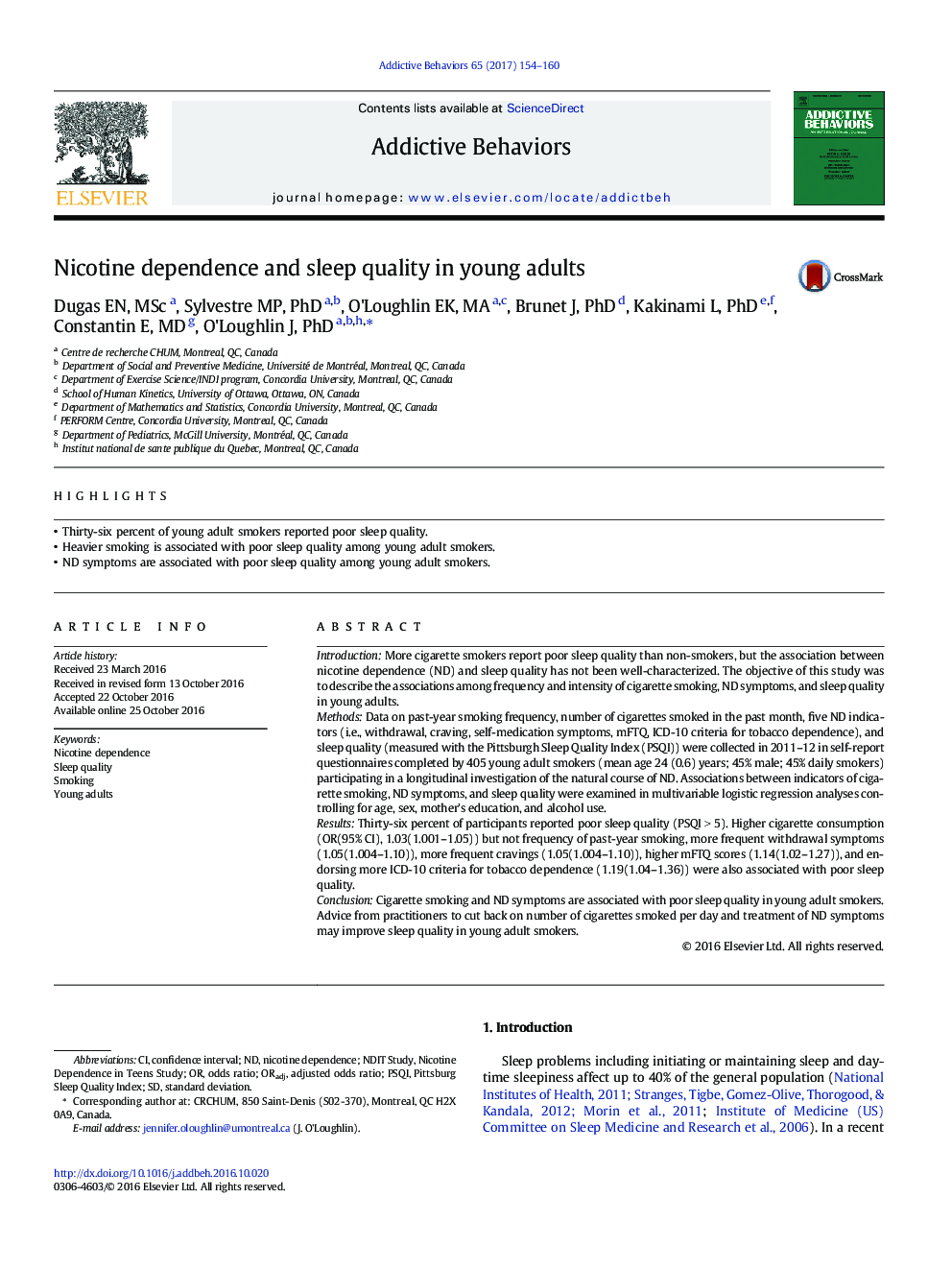| Article ID | Journal | Published Year | Pages | File Type |
|---|---|---|---|---|
| 5037903 | Addictive Behaviors | 2017 | 7 Pages |
â¢Thirty-six percent of young adult smokers reported poor sleep quality.â¢Heavier smoking is associated with poor sleep quality among young adult smokers.â¢ND symptoms are associated with poor sleep quality among young adult smokers.
IntroductionMore cigarette smokers report poor sleep quality than non-smokers, but the association between nicotine dependence (ND) and sleep quality has not been well-characterized. The objective of this study was to describe the associations among frequency and intensity of cigarette smoking, ND symptoms, and sleep quality in young adults.MethodsData on past-year smoking frequency, number of cigarettes smoked in the past month, five ND indicators (i.e., withdrawal, craving, self-medication symptoms, mFTQ, ICD-10 criteria for tobacco dependence), and sleep quality (measured with the Pittsburgh Sleep Quality Index (PSQI)) were collected in 2011-12 in self-report questionnaires completed by 405 young adult smokers (mean age 24 (0.6) years; 45% male; 45% daily smokers) participating in a longitudinal investigation of the natural course of ND. Associations between indicators of cigarette smoking, ND symptoms, and sleep quality were examined in multivariable logistic regression analyses controlling for age, sex, mother's education, and alcohol use.ResultsThirty-six percent of participants reported poor sleep quality (PSQIÂ >Â 5). Higher cigarette consumption (OR(95% CI), 1.03(1.001-1.05)) but not frequency of past-year smoking, more frequent withdrawal symptoms (1.05(1.004-1.10)), more frequent cravings (1.05(1.004-1.10)), higher mFTQ scores (1.14(1.02-1.27)), and endorsing more ICD-10 criteria for tobacco dependence (1.19(1.04-1.36)) were also associated with poor sleep quality.ConclusionCigarette smoking and ND symptoms are associated with poor sleep quality in young adult smokers. Advice from practitioners to cut back on number of cigarettes smoked per day and treatment of ND symptoms may improve sleep quality in young adult smokers.
